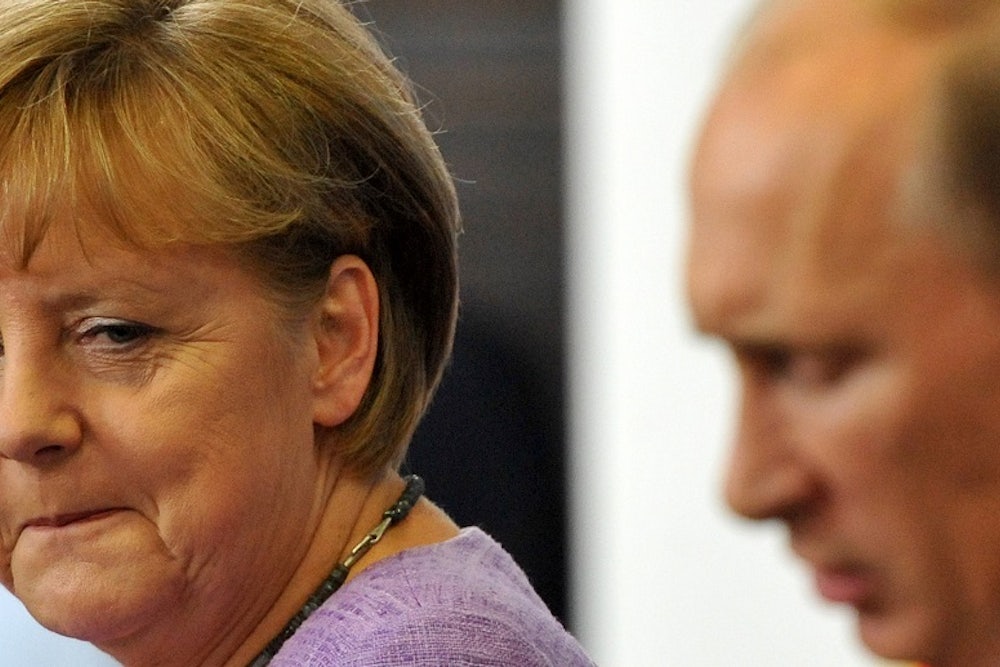As the crisis in Ukraine continues to escalate, the United States and European Union have increasingly imposed harsher sanctions against Russian officials, but have stopped short of imposing them on Russian companies. But as Russian President Vladimir Putin orders his troops further into eastern Ukraine, the West will have to seriously consider them—and the potential economic calamity that could follow.
Economic sanctions can be a powerful tool to gain leverage over another country. Over the past few years, the international community used them to drive Iran to the negotiating table. Unlike Iran though, where Western nations did not fear causing a global recession, Russia is a large, energy-rich nation that is deeply interconnected with the global economy. In 2010, more than 30 percent of the E.U.’s oil and natural gas came from Russia. The opposite is true as well. Moscow receives more than 40 percent of its revenue from state-run oil and natural gas companies, and more than 80 percent of that comes from the E.U.
That makes European sanctions against the Kremlin a double-edged sword. The E.U. could cut Russia off from European financial markets or prohibit European firms from doing business in Russia, but Putin could respond by cutting off natural gas and oil exports to the E.U. This would entail mutually assured economic destruction. The resulting energy shortage would likely send the E.U. into a recession. The same would happen in Russia, where firms would lose access to the liquid foreign financial markets and the Kremlin would find a major hole in its budget.
“If it escalates along the lines you suggest, it will lead to a global recession with a particularly strong negative effect on Europe at the wrong time,” said Michael Spence, a fellow at the Council on Foreign Relations.
As for the United States, the outlook is bleak as well. The U.S. is not reliant upon Russia for energy resources, but the price of oil is set in the global market. If Europe faces an energy shortage, the price of crude oil could spike and create an economic crisis here as well.
“The worst case scenario could be very dark—surging energy prices, crumbling stock prices, and much weaker trade and foreign direct investment,” Mark Zandi, chief economist at Moody’s Analytics, said in an email. “The timing is bad given that the U.S. economy appears set to finally kick into a higher gear. In this scenario, the U.S. economy would at best remain in stuck in the slow growth environment that has prevailed since the recovery began.”
If the United States unilaterally imposed severe economic sanctions on Russian firms, the economic effects would be much smaller. Trade between Washington and Moscow totaled less than $40 billion in 2013—a rounding error compared to the U.S.’s $5 trillion in trade worldwide. Some U.S. companies like Coke, Pepsi and Exxon would take a hit, but even retaliatory sanctions from Russia would only have a small effect.
That leaves European officials with an impossible choice. They can either risk an economic meltdown by imposing strict sanctions on Russia or allow Putin to invade and annex eastern Ukraine with few consequences. The latter scenario has scary geopolitical implications, but the possibility of another recession in Europe may outweigh them.
“Given the economics of such a scenario, it is hard to believe global leaders would go down this path,” Zandi said.
